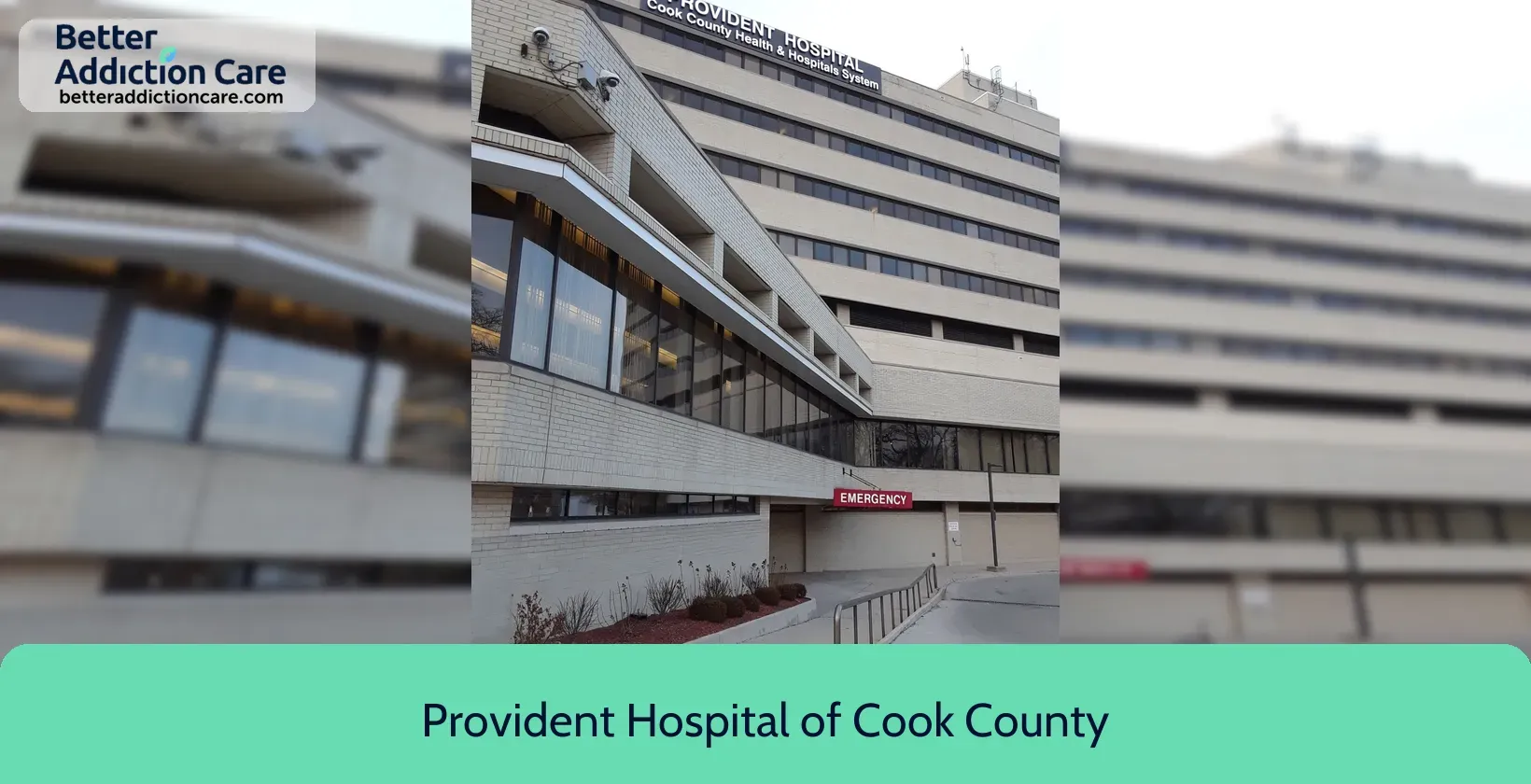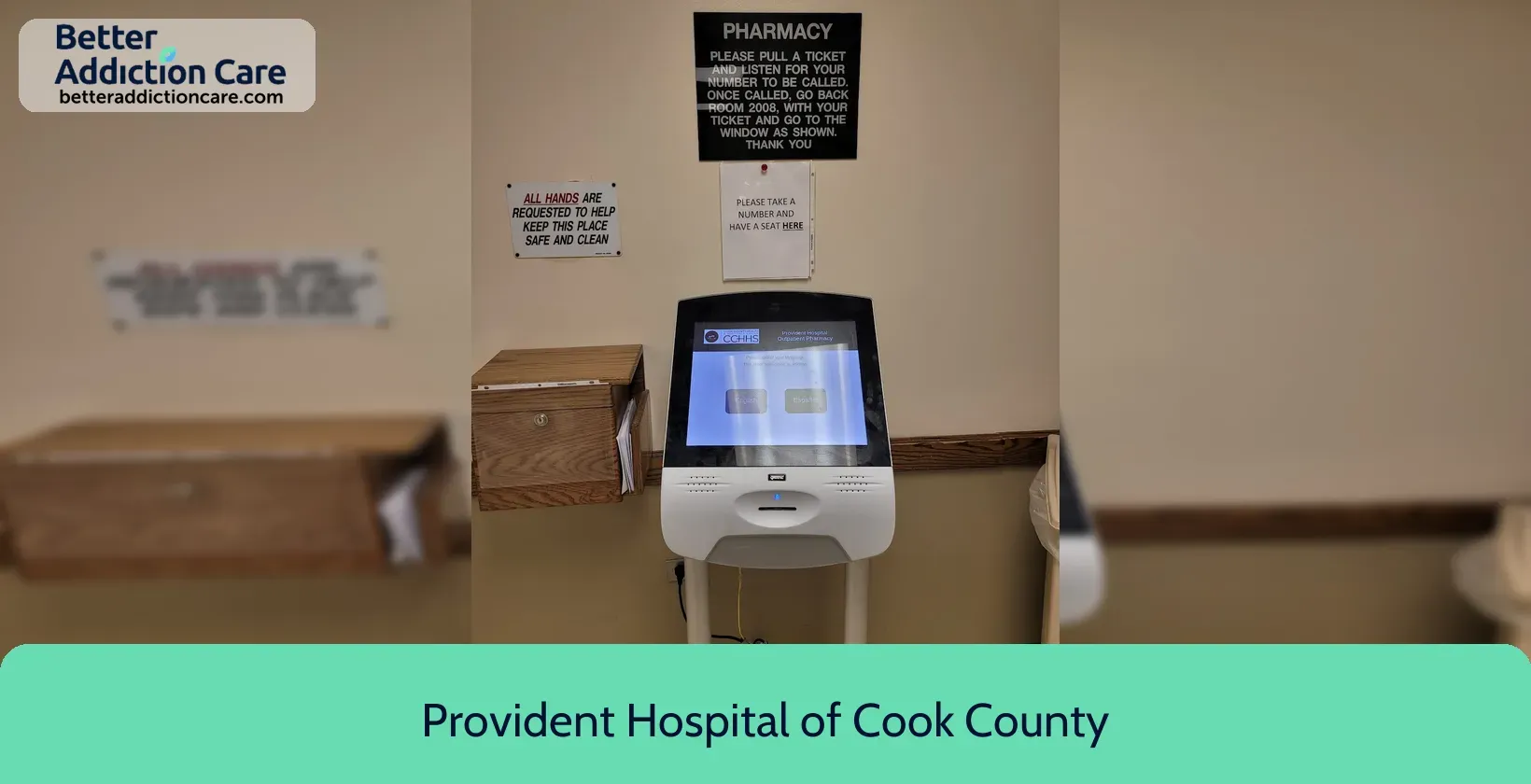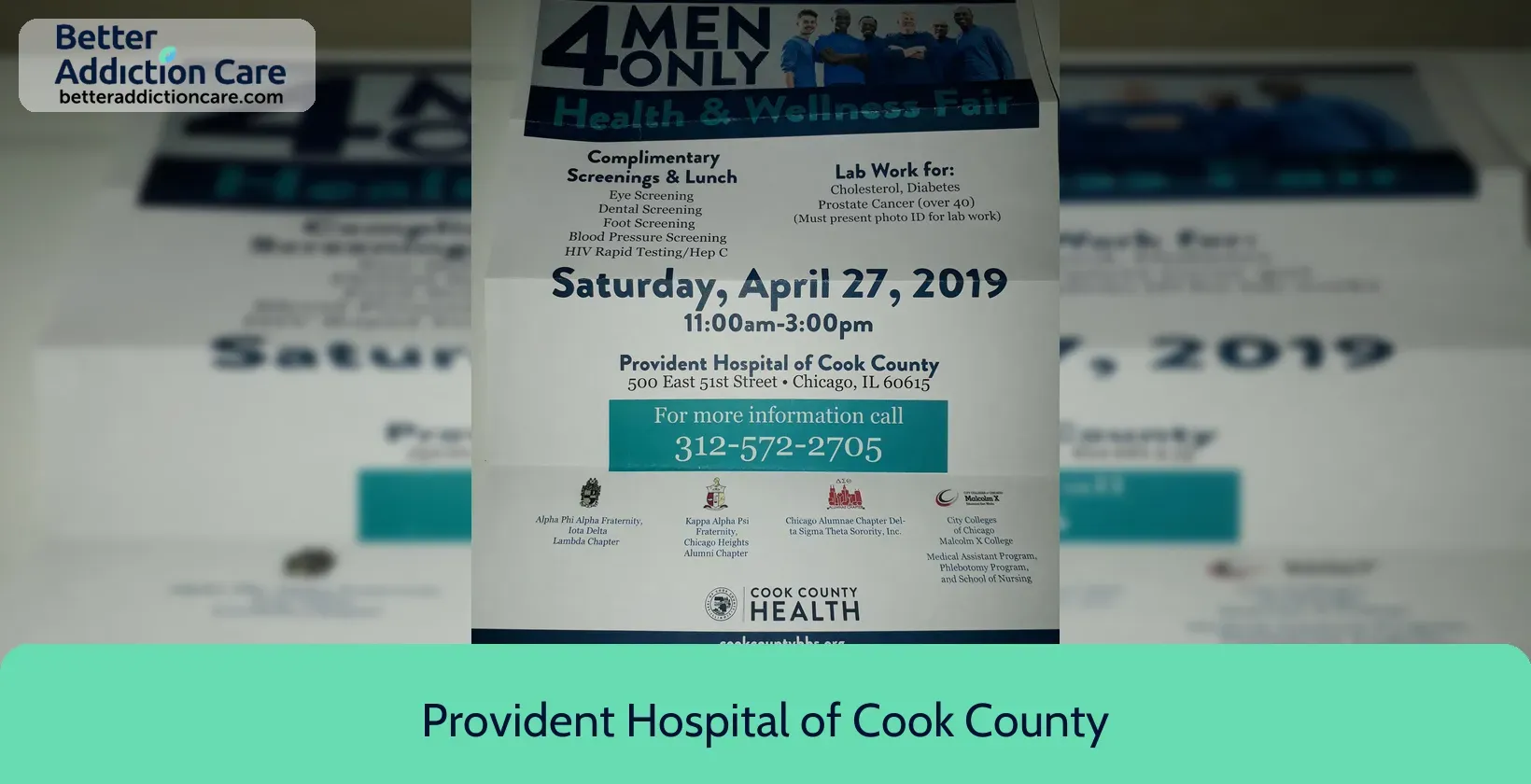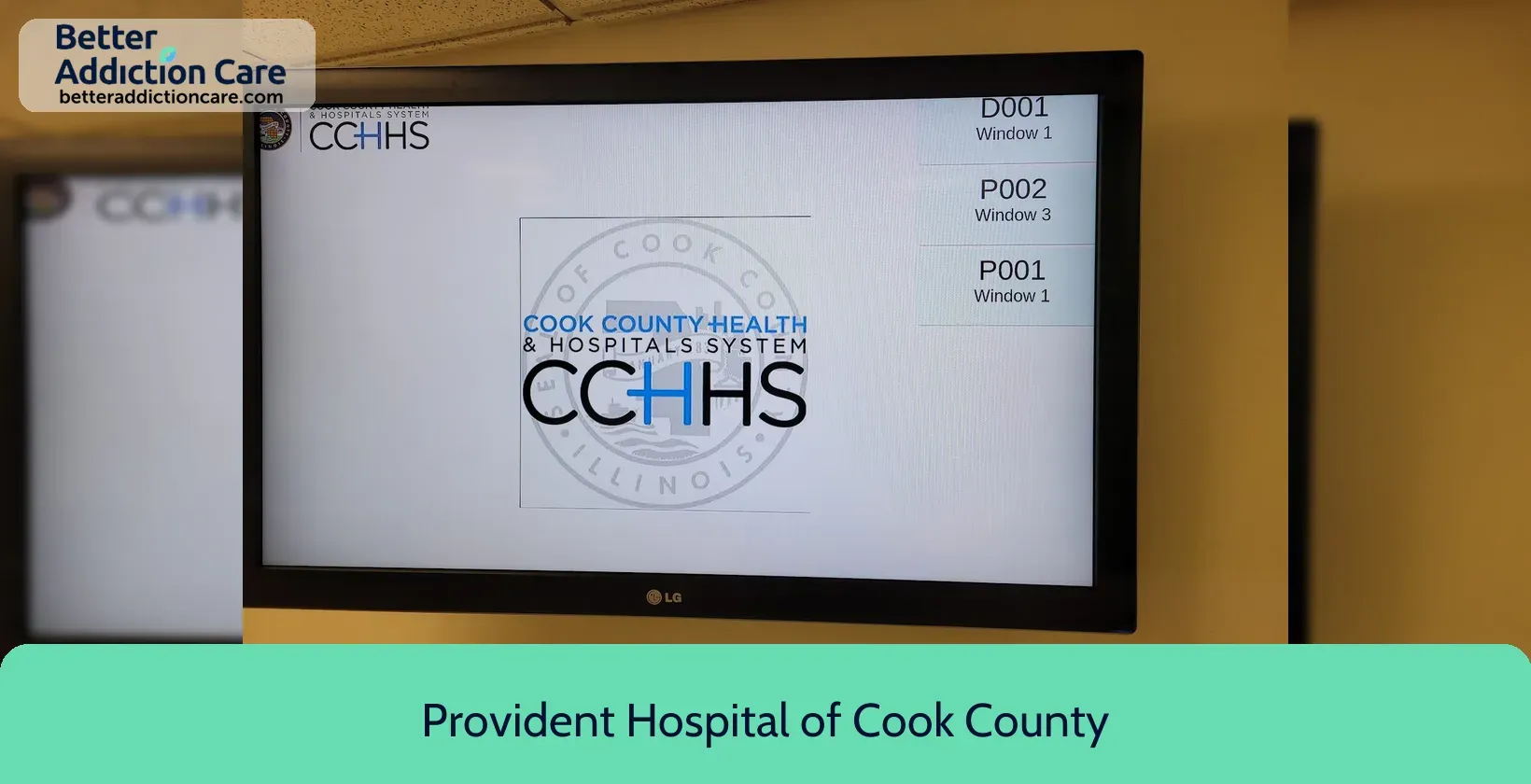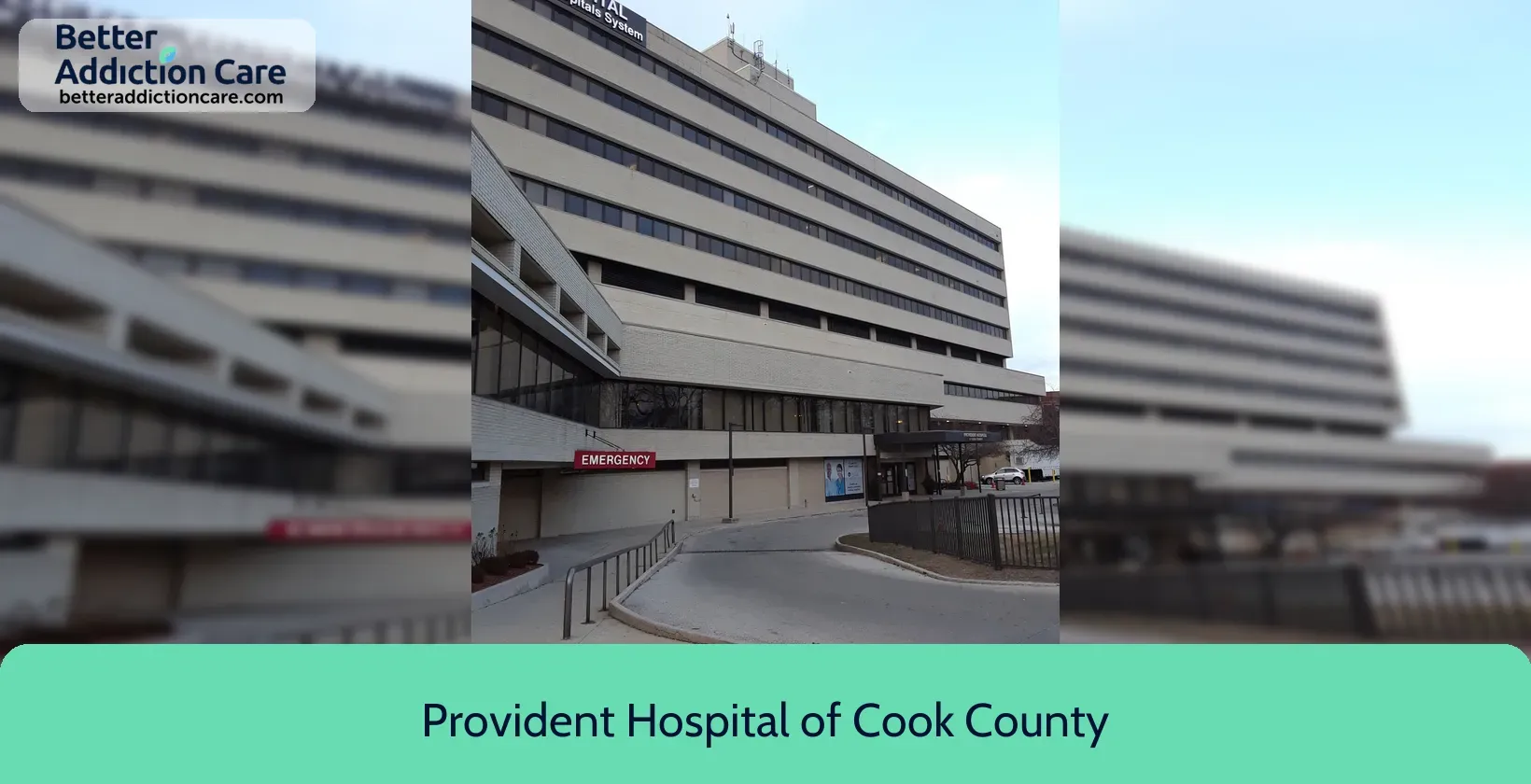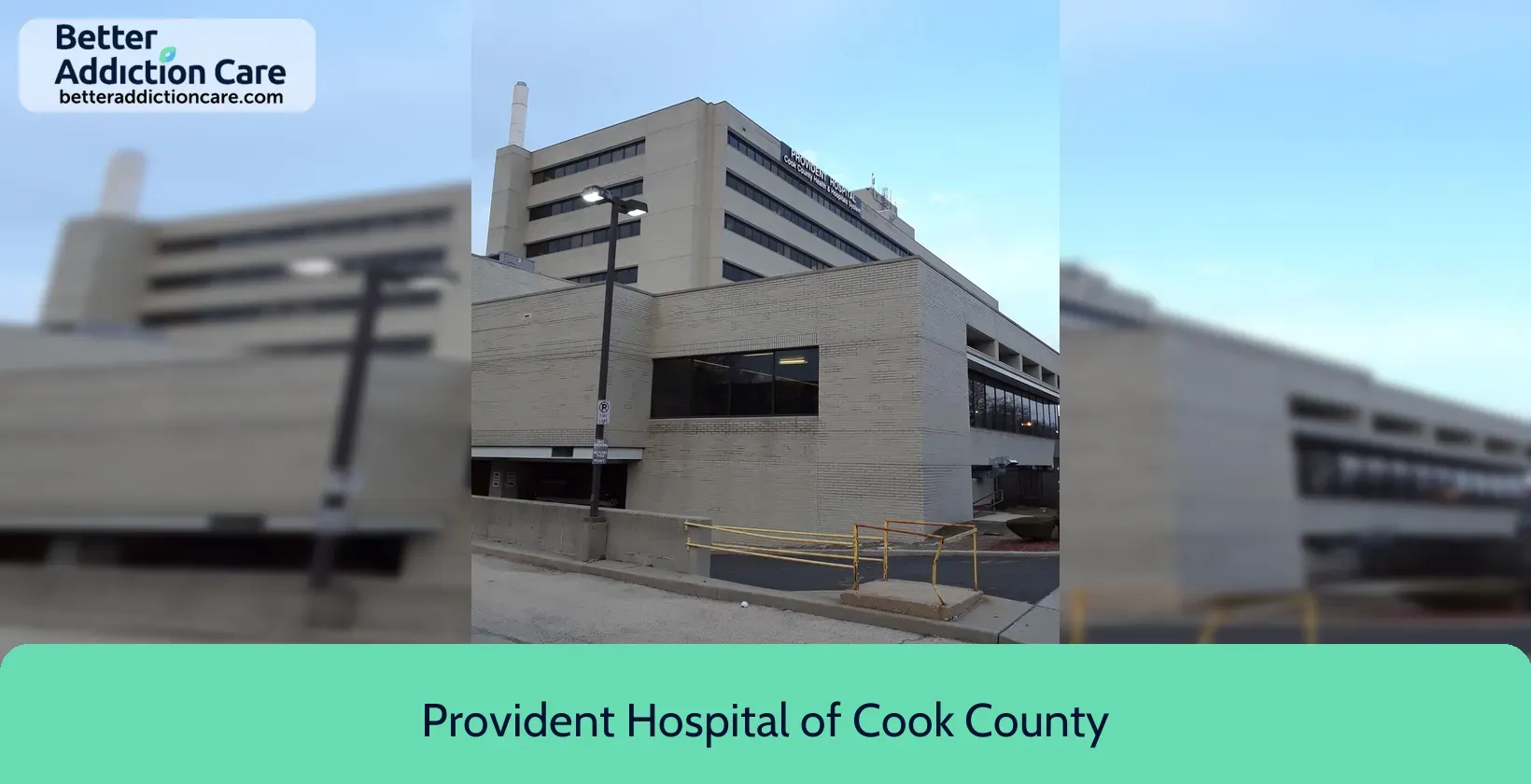Overview
Provident Hospital of Cook County is a mental health treatment center for people seeking treatment near Cook County. As part of their treatment modalities for recovery, Provident Hospital of Cook County provides group counseling, cognitive behavioral therapy, and dialectical behavior therapy during treatment. Provident Hospital of Cook County is located in Chicago, Illinois, accepting cash or self-payment for treatment.
Provident Hospital of Cook County at a Glance
Payment Options
- Cash or self-payment
- Medicaid
- Medicare
- State-financed health insurance plan other than Medicaid
- Private health insurance
Assessments
- Screening for tobacco use
- Comprehensive mental health assessment
- Comprehensive substance use assessment
Age Groups
- Young adults
- Adults
- Seniors
Ancillary Services
- Integrated primary care services
Highlights About Provident Hospital of Cook County
6.65/10
With an overall rating of 6.65/10, this facility has following balanced range of services. Alcohol Rehabilitation: 8.00/10, Drug Rehab and Detox: 6.00/10, Insurance and Payments: 6.00/10, Treatment Options: 6.61/10.-
Alcohol Rehabilitation 8.00
-
Treatment Options 6.61
-
Drug Rehab and Detox 6.00
-
Insurance and Payments 6.00
Treatment At Provident Hospital of Cook County
Treatment Conditions
- Alcoholism
- Mental health treatment
- Substance use treatment
- Co-occurring Disorders
Care Levels
- Outpatient
Treatment Modalities
- Group counseling
- Cognitive behavioral therapy
- Dialectical behavior therapy
- Integrated Mental and Substance Use Disorder treatment
- Telemedicine/telehealth therapy
Ancillary Services
Languages
- Spanish
Additional Services
- Pharmacotherapies administered during treatment
- Metabolic syndrome monitoring
Contact Information
Read our Most Recent Article About Drug Addiction
DISCLAIMER: The facility name, logo and brand are the property and registered trademarks of Provident Hospital of Cook County, and are being used for identification and informational purposes only. Use of these names, logos and brands shall not imply endorsement. BetterAddictionCare.com is not affiliated with or sponsored by Provident Hospital of Cook County.
